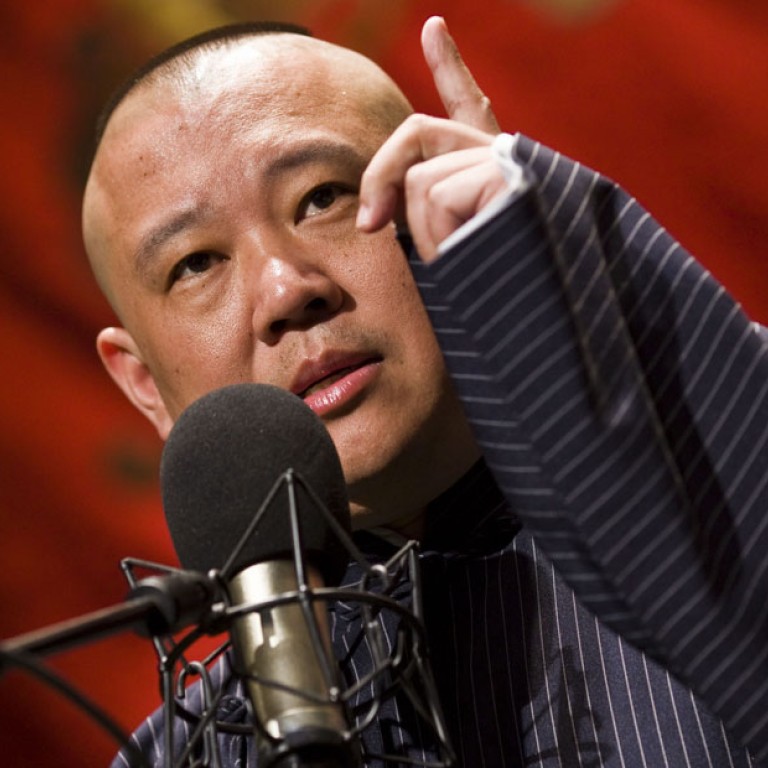
Beijing TV station calls for boycott of comedian Guo Degang
Beijing TV station calls for a boycott of comedian after he takes a swipe at the station's deceased boss following pay dispute
Comedians delight in offending. What makes them different from louts is their willingness to make fun of themselves. Sanctimony, in their eyes, is the only true blasphemy.
But dancing on the grave of an enemy is hard to do gracefully, as performer Guo Degang has no doubt recently realised.
Guo is locked in a boycott battle with state television authorities after he posted a poem ostensibly about karma, and a picture of the Chinese characters for double happiness, on his blog on November 20, the day after the director of Beijing Television (BTV), Wang Xiaodong, died.
He did not name Wang but the timing and the veiled references in his verses made clear the person he was talking about.
The network responded by calling for a television boycott of the star, but the campaign has so far gained little traction.
Guo, 40, is a leading figure in or cross-talk, a traditional Chinese art form rooted in wordplay and often performed by a duo in front of a live audience. He emerged in the mid-1990s, but his career began to bloom about a decade ago when he started to appear on television, BTV in particular.
The relationship grew strained a few year later when he accused the network of not paying him enough, according to . BTV banned Guo in 2010 after several of his assistants allegedly beat up a reporter while he was covering an unlicensed renovation at a villa the comedian owned. It is unclear what role Wang played in the decision to ban Guo, but the battle lines were apparently drawn.
The comedian's post about Wang's death on Sina's Weibo was soon deleted, but with more than 55 million followers, by then it was already too late.
On December 15, a TV industry committee affiliated with the nation's broadcasting watchdog, the General Administration of Press, Publication, Radio, Film and Television, issued a statement that backed BTV's call for sister networks, about 400 in all, to join in the boycott of the comedian.
However, the rare rebuke from the committee only added fuel to a debate in the media over the legitimacy of the campaign against Guo.
Citing the practice in which professionals like lawyers and doctors are disqualified for ethics violations, the said that the boycott was justified because his lack of moral compass made him unfit to continue as a public figure.
The paper said Guo's actions warranted the committee's support for a boycott and the committee was being socially responsible.
The said in a commentary that Guo had no doubt acted distastefully but both BTV and the television industry committee had apparently tried to bully the cross-talk performer with the boycott call.
The paper noted a shift in public opinion from an initial disapproval of the comedian to overwhelming sympathy towards him in the days after the committee released its statement.
It sensibly suggested leaving the matter up to the family of the late BTV director and if they felt Guo had crossed a line, they could go to the courts.
The Shanghai-based noted that no TV station had yet openly responded to the boycott appeal.
Despite BTV's ban, Guo's career has found a solid footing elsewhere, such as Jiangsu TV, one of the most commercially successful regional networks on the mainland, and Tianjin TV.
Even the conservative , a tabloid affiliated with party mouthpiece , has questioned whether the boycott appeal could succeed due to Guo's popularity on the internet.
"Chinese society is so diversified that an entertainer's clout … in many ways isn't necessarily less than what traditional media institutions like BTV possess," it said.
